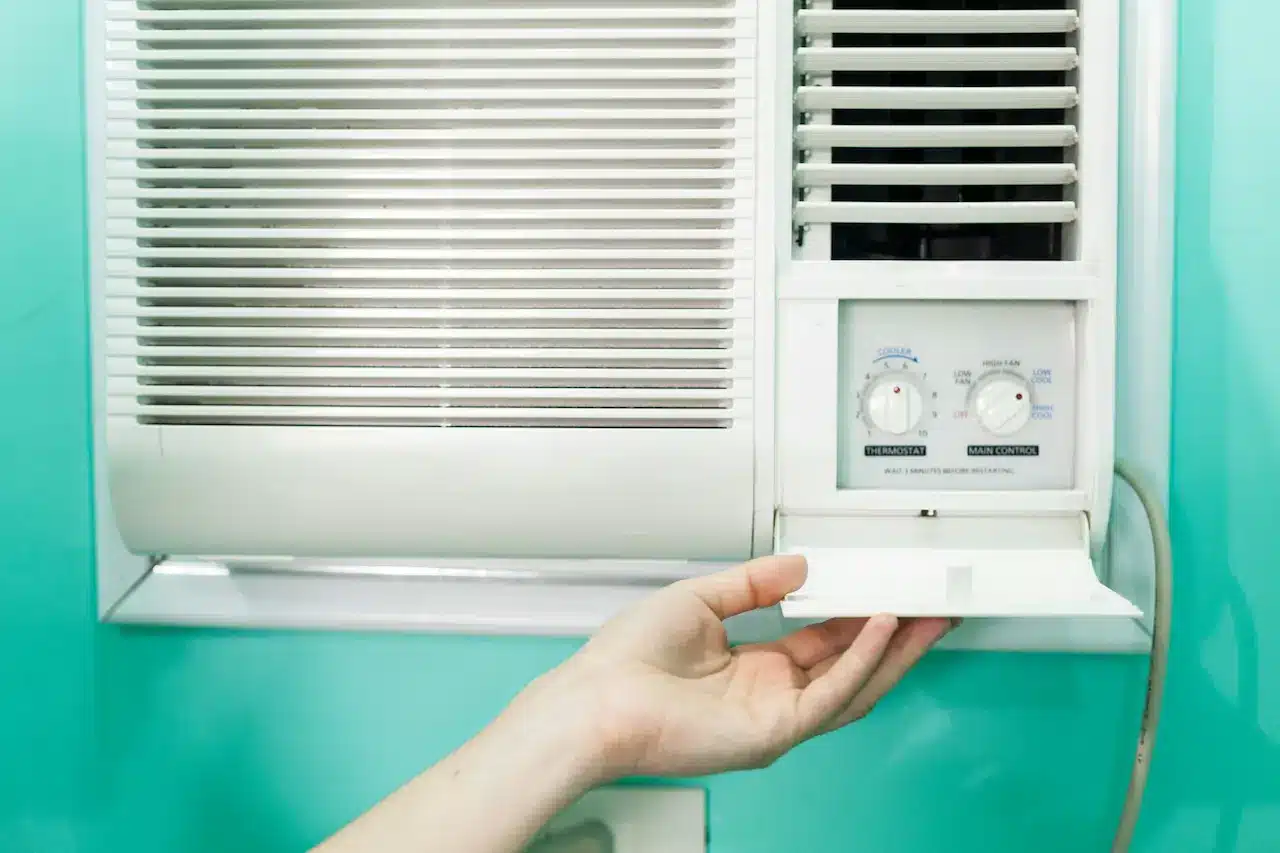Secrets to Home Air Quality
Secrets to Home Air Quality: The Importance of AC Beyond Keeping Cool
Air conditioning units are a common appliance found in most households today, especially in tropical regions and areas where summers can get scorching hot.
While most people believe that A/C units serve one primary purpose, to cool a room, the truth is that AC goes beyond keeping a space at a pleasantly cool temperature.
In reality, an A/C unit is hard at work maintaining the air quality of an indoor space, and it does this in various ways and across different indoor environments.
If you’re curious to learn how an A/C unit can help foster a space that’s cool, comfortable, and healthy, you’re in the right place. We’ll reveal the secrets of how A/C units go beyond cooling and help keep your home’s air quality at high and comfortable levels.
Let’s get right into it.

4 Ways an AC Unit Maintains Air Quality
Let’s explore some ways an AC unit benefits a household beyond keeping the space cool.
-
Filters the Air
One benefit of an AC unit besides keeping a space cool is keeping the air free from pollutants. A/C units cool the air by circulating it through a closed system, absorbing heat from the inside and trapping it outside.
This circulation process keeps air from stagnating inside the room, allowing new air to enter the room and consequently minimising the risk of contaminants and dust from accumulating within an enclosed space.
Air conditioners perform this action thanks to the presence of special air filters that trap dust, pollen, and dirt. If you replace the air filter every three months, or give it a rinse over the same timespan in the case of reusable filters, then the room can benefit from clean, breathable air that’s safe for you, your family, and the entire household.
This is highly beneficial for not just respiratory comfort, but also for reducing health issues that may stem from allergic reactions to dust and pollen. So, for families with a history of allergic reactions in stuffy places, an AC unit can help reduce allergy outbreaks and keep your family safe.
If you need some assistance in conducting an air conditioner installation at home, consider looking up brand-specific resources online or calling reputable appliance retailers to help you get it done. You can also look through the manual that comes with the A/C unit.
-
Controls Humidity
Another key benefit of an A/C system is its ability to keep humidity levels at comfortable levels within a house, apartment, or studio unit.
Sitting through humidity levels of 50% and higher makes for a very uncomfortable experience, especially indoors, where no natural wind can enter. Couple that with high heat, and it’s not uncommon for people to be drenched with sweat in just a few short minutes inside their rooms.
But that’s not the bulk of it. A high level of moisture in the air can trigger the growth of mould and mildew. This can be a health hazard if left unchecked for too long, causing symptoms in people like skin irritation and respiratory problems.
An A/C unit cools the air not just by bringing the temperature down, but also by removing excess humidity in the air. This makes a living environment healthier, more comfortable, and less risky for all types of people.
Moreover, when humidity levels are controlled, the interior of the house as well as its contents will be preserved for longer thanks to reduced dampness levels. The combination of all these factors makes having an A/C unit a clear must-have for households in humid and warm climates.
-
Reduces The Need for Natural Ventilation
If you live in a metropolitan city or a busy suburban neighbourhood, your home will likely be exposed to constant fumes and exhaust from cars and factories outdoors.
Rural countries aren’t exempt either, as dust and pollen could enter the household through an open window and reduce indoor air quality, and subsequently, the quality of life of the dwellers within the space.
In summertime, hot temperatures could call for ways to keep cool. This is normal, and the usual response would be to open the window for wind to enter.
That said, if you don’t want to choose between hot, stuffy air or unhealthy air from the outside world, an A/C unit may be just what a household needs to create a controlled and safe environment.

-
Limit The Spread of Bacteria and Pet Dander
Another way that air conditioning units benefit households is their ability to keep airborne irritants at bay. As air flows through the A/C unit, it captures fine particles like dust, skin flakes, and fur that would otherwise continue to circulate and float around a room.
In excess, these fine particles can exacerbate health issues like allergies and asthma, which can be detrimental to a person’s health in the long run. Moreover, bacteria can also spread in a room that’s confined with little to no ventilation and air circulation.
An A/C unit, thanks to its built-in filtration, helps remove these unfavourable conditions and keeps your home environment safe for everyone living there.
How to Pick an A/C For Superior Home Air Quality
Here are some factors to watch out for when picking an air conditioning unit for your home.
-
Check the Filtration System
The first consideration you should make when shopping around is the filtration system of the A/C unit. Ideally, pick an A/C unit that has an advanced and highly efficient filtration system. Look at a unit’s Minimum Efficiency Reporting Value (MERV) value.
The higher the reported figure is, the better the unit is at filtering the air. A MERV value of 7 to 12 is deemed the acceptable standard, but if the model’s figure reaches 13 to 16, then that’s the best it could be.
A good filtration system is integral for capturing and filtering microns, or very fine particles that can’t be captured by the human eye. If an appliance can effectively capture and trap particles like allergens, dust, and pollen, then that could make the household’s air quality significantly better than it otherwise would be.
-
Opt for Energy-Efficient Units
If you want good air quality, opt for an A/C unit that has a high SEER (Seasonal Energy Efficiency Ratio) or Energy Star rating.
Manufacturers that make appliances that pass these models are typically built to promote clean air in both the environment inside and outside the household. They’re also good for keeping running costs low, which can help you save more on utility bills each month.
If you care about reducing your carbon footprint (which you should!), then narrow your options to A/C units that pass energy efficiency certifications. You’ll be making the smarter and more sustainable choice that way.
-
Look at Humidity and Air Purification Features
A good A/C unit should contain multiple features that allow you to create a comfortable and cool indoor environment regardless of the outside conditions. This includes humidity and air purification control measures.
Pick A/C units with built-in dehumidifiers and humidity sensors to ensure that moisture levels are in good standing regardless of the humidity levels outside. This way, indoor conditions will be pleasant and dry.
On top of that, you should also consider getting AC units with air purification features that can keep airborne contaminants at bay. Ionisers and plasma filters are great features to have in an A/C unit as they can ensure that the air you’re breathing indoors is both clean and comfortable.
If you live in a polluted area, having these features is strongly recommended to ensure your safety and comfort at home at all times.
-
Choose The Right A/C For Your Space
Another essential consideration to make is the A/C type.
There’s no single A/C type that can fit across all homes and residential buildings. Some A/C systems are more suited than others in various settings, and it’s essential to pick the most suited ones to ensure that you’re making the right choice.
Here are some A/C types to consider, and what room layouts benefit the most from them:
- Split-type systems: Known for their quiet operation, excellent filtration, and efficient cooling. Good for living rooms and bedrooms.
- Ducted systems: Good for big spaces that need uniform cooling. Not ideal for most residential arrangements.
- Window units: Easy-to-install and budget-friendly, though only offering basic filtration.
- Multi-split systems: Good for homes that need a mix of different A/C systems. Offers tiered air distribution.
Depending on your living arrangement, any of these A/C units can be viable options for your needs.
That said, the two most popular ones for most residential homes are typically the split-type and window units, so we’d recommend exploring models in either of these options as a start.

